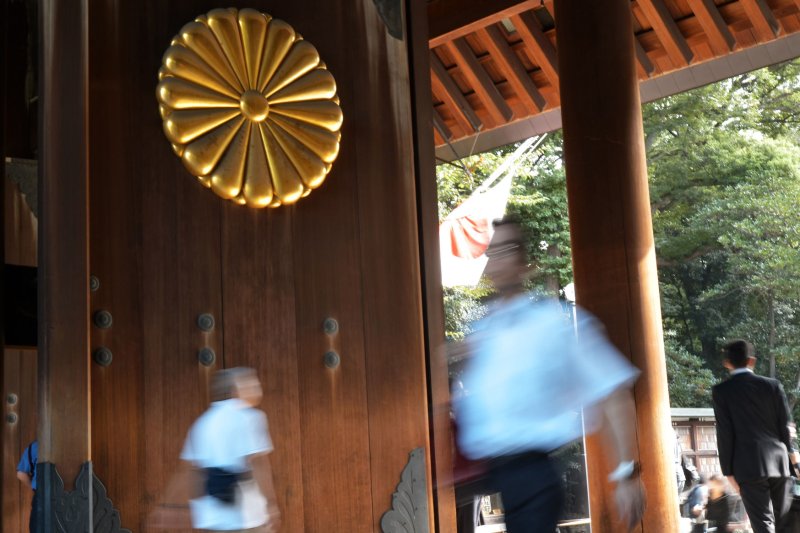Japanese Prime Minister Shinzo Abe sent a ritual offering to Yasukuni Shrine on Tuesday. File Photo by Keizo Mori/UPI |
License Photo
April 21 (UPI) -- South Korea expressed "deep regret" following reports that Japanese Prime Minister Shinzo Abe sent an offering to the Yasukuni Shrine, a Japanese Shinto shrine memorializing the war dead, including more than 1,000 convicted war criminals.
Seoul's foreign ministry said in statement the shrine is a symbol of colonial occupation and wars of invasion, Yonhap reported Tuesday.
"The South Korean government expresses deep disappointment and regret regarding Prime Minister Shinzo Abe's tribute to Yasukuni Shrine, a symbolic facility that embellishes Japan's [history of] colonial plunder and wars of invasion," the foreign ministry said.
Seoul also urged Japanese leaders to show their willingness to improve bilateral relations by demonstrating a willingness to "humbly reflect on the past" while facing truths of history, according to the report.
Earlier on Tuesday, Abe sent a "masakaki" tree offering in his name to the shrine, according to Japanese news agency Kyodo. The trees stand on the left- and right-hand sides of the shrine's altar.
Abe last visited Yasukuni in person in December 2013. After suspending visits following complaints from Seoul, the Japanese leader continued to send an offering in his name.
On Tuesday, Minister for Internal Affairs Sanae Takaichi and Minister of Health, Labor and Welfare Katsunobu Kato also sent offerings to Yasukuni, according to reports.
Abe's offering comes at a time when Japan is struggling to contain the novel coronavirus. On Sunday, Japan's confirmed cases surpassed South Korea's.
Japanese newspaper Nikkei reported Tuesday South Korea's success in containing COVID-19 is due to the extensive authority and reach of Seoul's centers for disease control and prevention.
Korea's disease control authorities can seek the assistance of local police to track down patients and their suspected contacts. By contrast, Japan's National Institute of Infectious Diseases is a research-oriented agency with no power to quarantine citizens.
Japan also lacks an independent agency like the United States' Centers for Disease Control and Prevention, according to the Nikkei.















